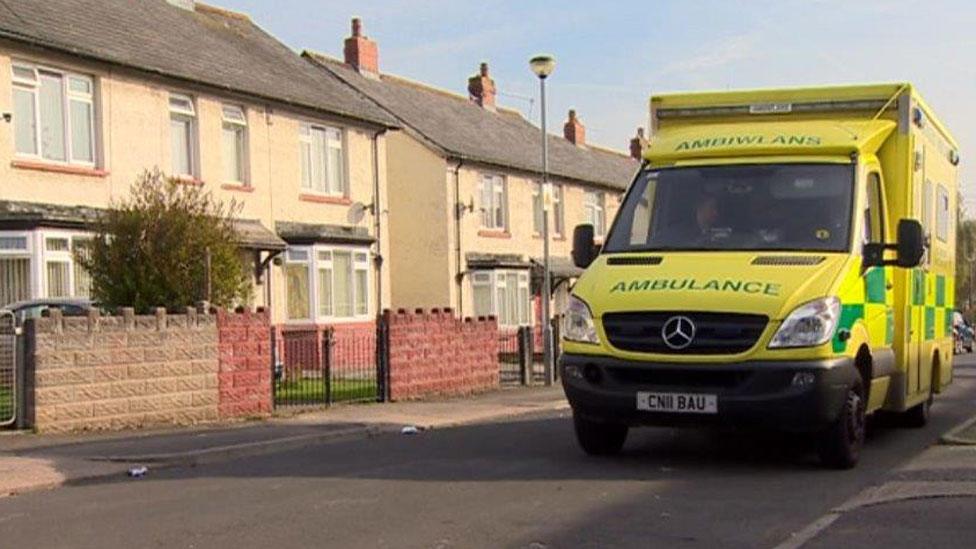Wales' ambulance emergency callout time target met
- Published
Response time targets have been dropped for all but the most urgent calls
New data measuring how effectively ambulance staff in Wales deal with 999 calls has been published for the first time.
Official figures have shown, external a total of 72.4% of red calls were reached within eight minutes in December.
It follows a new year-long pilot to test changes to the Welsh Ambulance Services NHS Trust's patient response.
In November, nearly 71% of code red calls were responded to compared with the 65% target.
The new pilot, implemented in October, measures the results of treatment and patients' overall experience in a bid to make sure they receive the most appropriate care.
The Emergency Ambulance Services Committee, which oversees the compilation of the data, said Wales now has the most detailed information on ambulance performance across the UK.
The new data, for October to December, showed that out of 69,686 patients taken to hospital or another destination by ambulance, the vast majority - 63,694 - went to A&E.
'Improvements'
Ambulance crew handed over 58.2% of cases to hospital staff within the target time of 15 minutes, yet 12,233 hours were lost due to delays.
Since a new traffic light system for grading calls was introduced, call centre staff have been given more time to determine the nature of the emergency.
Of the total number of emergency calls received in December, 1,927 (5.0%) were red - "immediately life threatening" - the figures showed.
Of those, more than 90% of red calls received a response within 15 minutes, but seven responses took longer than 30 minutes to arrive.
Amber calls, deemed serious but not life threatening, do not have a target time but 65% were responded to within 15 minutes and 23 seconds.
Emergency response time figures for November cannot be compared to December's as revised changes where introduced on 11 November, meaning a 999 call is now upgraded to a red category if the patient deteriorates.
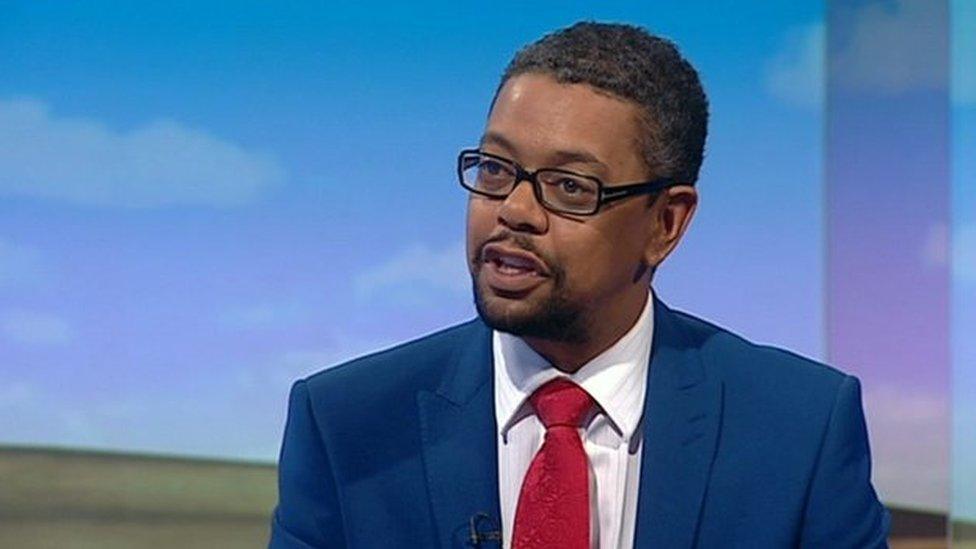
Tracy Myhill, chief executive of the Welsh Ambulance Service, said they were "committed to learning and improving from this pilot as we move forward".
Deputy health minister Vaughan Gething said it was "encouraging" to see "continuing improvement".
"The new clinical response model is helping to ensure people get the right care, in the right place, at the right time," he said.
However, he called for improvements in Powys and Hywel Dda health boards' performances, as both failed to reach the 65% emergency response target.
Welsh Liberal Democrats leader Kirsty Williams has criticised the variation in response times across Wales, adding: "Labour ministers need to address this imbalance quickly."
- Published30 December 2015
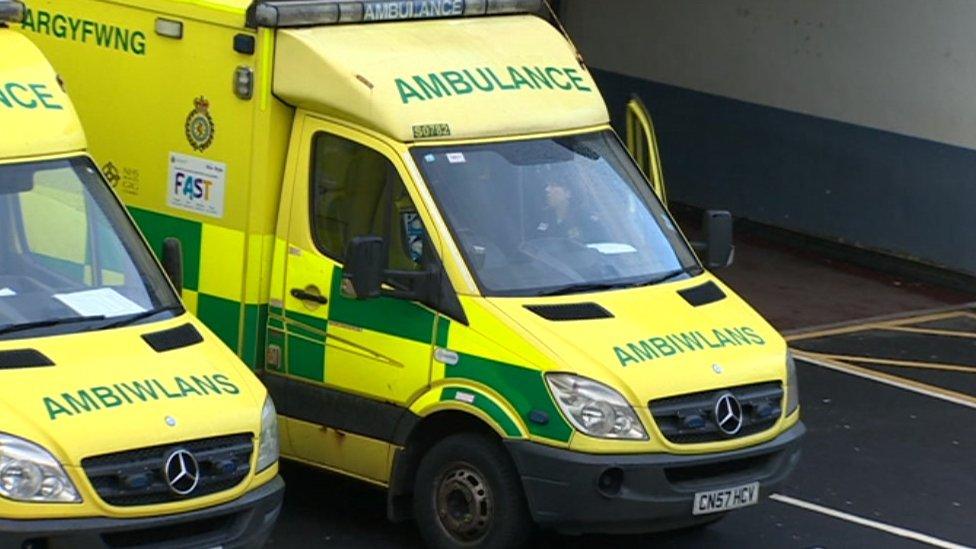
- Published25 November 2015
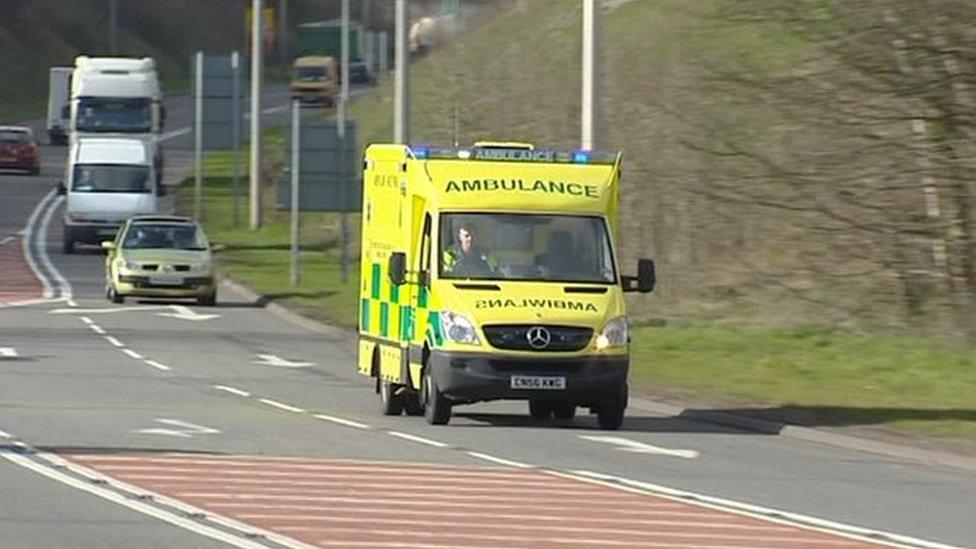
- Published29 July 2015
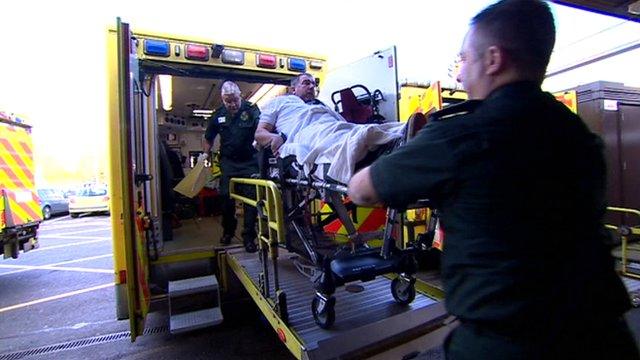
- Published1 October 2015
